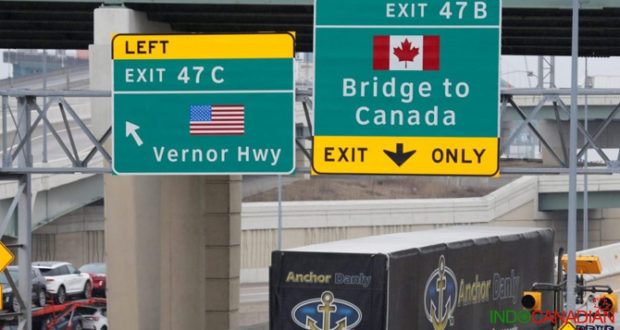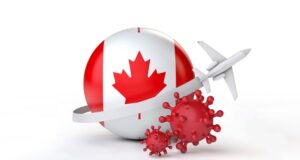The Canada-US Boarder closure
The Canada–United States border, officially known as the International Boundary, is the longest international border in the world between two countries. It is shared between Canada and the United States.
Due to the mounting number of COVID-19 cases, Prime Minister Justin Trudeau had announced the closure of the Canada – U.S. border to all “non-essential travel”. This closure was mutually negotiated between both countries. Speaking in Ottawa, Prime Minister Trudeau stated that the “non-essential travel” includes all forms of recreation, tourism and shopping trips between both countries.
On March 16, Canada closed its borders to all countries except the US and then, in conjunction with the U.S., suspended non-essential travel across the border on March 21. In addition, those had to enter the country were required to self-isolate at home for 14 days (this requirement was lifted for those who work in certain professions, like truck drivers who work as part of the food supply chain, or flight personnel.
Completely closing the border remains out of the question as both countries are heavily interconnected: Canada sends 98% of its oil exports to the US. 18% of US exports as a whole go to Canada. It says permanent residents, students, military, cargo and essential workers can cross the border. But it also cites medical purposes as an example of essential travel — without elaborating further. As per the statics, land crossings into Canada down 82%, U.S. air travel down 96%, even cargo is down 24%. The supply chains ensure that food, fuel and life-saving medicines reach people on both sides of the border. Supply chains including trucking will not be affected by this new measure.
Air Canada prepares for Temporary Layoffs
Air Canada, the national carrier of Canada, is cutting second-quarter capacity by up to 90% and is temporarily laying off more than 16,000 employees, the carrier announced. It will place 15,200 members of its unionized workforce on Off Duty Status and furlough about 1,300 managers. The workplace reductions will be effective on or about April 3, 2020 and are intended to be temporary.
Calin Rovinescu, President and Chief Executive, Air Canada said, “The unpredictable extent and duration of the COVID19 pandemic requires a significant overall response. To furlough such a large proportion of our employees is an extremely painful decision but one we are required to take given our dramatically smaller operations for the next while. It will help ensure that Air Canada can manage through this crisis that is affecting airlines everywhere.
In addition to the temporary workforce reductions, other measures implemented by Air Canada include: A company-wide cost reduction and capital deferral programme, targeting at least US$500 million; Drawing down operating lines of credit of approximately US$1 billion, to provide additional liquidity.
Air Canada intended to continue to serve a small number of international and U.S. trans-border destinations from select Canadian cities after April 1, 2020 in addition to a reduced network in Canada.
The airline says it will also continue to operate special international flights in collaboration with the Government of Canada to repatriate Canadians abroad as well as cargo-only flights to ensure the continued movement of essential goods, including medical supplies.
Canadian Airlines Getting Sued for Not Refunding
Five Canadian airlines are being sued for breach of contract after refusing to issue full refunds to travelers for flights that were canceled due to the COVID-19 pandemic.
The class-action lawsuit has been taken out against Air Canada, WestJet, Swoop, Air Transat and Sunwing.
Mission, B.C. resident Janet Donaldson filed the suit in federal court on behalf of travelers whose contracts state that they are entitled to refunds by Air Canada, WestJet, Air Transat, Sunwing, and Swoop. Donaldson’s WestJet flight from Vancouver to New York in April was cancelled after the federal government banned non-essential travel.
The complainants in the case argue that they are entitled to a full refund, as they may not wish to travel in future, and believe they might need the money during this uncertain and, in many cases, financially challenging time. According to court documents, the suit claims that the airlines should not be allowed to hold onto customers’ money “indefinitely for a purchase that… they may or may not wish to make in the future.”
 Indo Canadian News News That Matters
Indo Canadian News News That Matters






